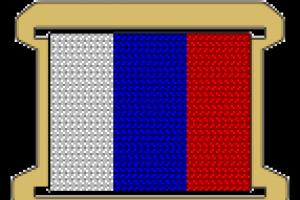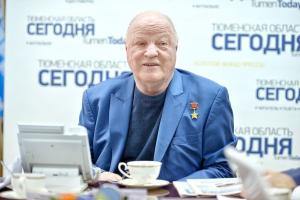It's hard to say how we would manage without pronouns. Without them it is impossible to construct almost a single phrase. Here, for example, are the previous two. That is, of course, it is possible. But why bother?
If you put together all the pronouns in the Russian language, you will get an impressive document. But it doesn’t make sense to simply lump everything together. Therefore, we have prepared a special article for you. It contains all the basic information about the categories of pronouns, their grammatical features and spelling, as well as a sample of morphological analysis. Special tables will help you better master all the necessary knowledge about pronouns in the Russian language. And examples from literary works will help to more clearly imagine how the grammatical characteristics of pronouns are implemented in practice.
What are pronouns
Pronoun refers to an independent part of speech that is used instead of nouns, adjectives, numerals and adverbs (or their characteristics) to indicate these nouns, adjectives, numerals and adverbs (as well as their characteristics and quantity), without naming them.
The grammatical features of pronouns depend on which part of speech they refer to. This will be discussed in more detail below.
Pronouns are divided into two types of categories: by meaning and by grammatical features.
Digits by value:
- personal;
- returnable;
- possessive;
- interrogative;
- relative;
- index;
- definitive;
- negative;
- undefined.
Sometimes reciprocal and general pronouns are also added to this classification.
Disorders based on grammatical features:
- generalized subject;
- generalized-qualitative;
- generalized quantitative.
This classification examines how pronouns relate to different parts of speech: nouns, adjectives, numerals. In some sources, a special group of pronouns that are correlated with adverbs is sometimes included here.
Now we will analyze all these categories in detail.
Classes of pronouns in Russian
By value:
Personal pronouns. In speech, they indicate its object - the person in question. Pronouns 1 ( I/we) and 2 ( you you) faces indicate participants in speech. 3rd person pronouns ( he, she, it/they) indicate persons who do not participate in the speech.
Obsolete personal pronoun one used to refer to objects of speech female (plural).
Personal pronouns in the Russian language change according to persons and numbers, pronouns of the 3rd person singular - also according to gender, as well as to cases.
In a sentence they play the role of subject or object.
- I couldn't shake the feeling that they could see us. (Ch.T. Aitmatov)
- Life is always accompanied by efforts, hardships and hard work, because she is not a garden with beautiful flowers. (I.A. Goncharov)
- Why don't I want to be smarter if I understand how stupid everyone around me is? If you wait for everyone to wise up, it will take too long... and then I realized that this is completely impossible. (F.M. Dostoevsky)
Reflexive pronouns. In speech, they indicate the direction of action to the subject. Reflexive pronoun myself does not have a nominative case form, but is declined in all other cases: yourself, yourself, yourself/yourself, (about) yourself. Does not change according to persons, numbers, genders.
In a sentence it acts as a complement.
- If you happen to be angry with someone else, be angry with yourself at the same time, at least for the fact that you managed to get angry with someone else. (N.V. Gogol)
- There is nothing more pleasant than being obliged to do everything to yourself. (N.V. Gogol)
- To live for oneself is not to live, but to exist passively: you need to fight. (I.A. Goncharov)
- We often allow ourselves to think that ancient people are like inexperienced children. (L.N. Tolstoy)
Possessive pronouns. In speech, they indicate that a certain object (objects) belongs to a subject (or subjects).
Possessive pronouns:
- 1 person – my, my, my/my And our, ours, ours / ours;
- 2 persons – yours, yours, yours / yours And yours, yours, yours/yours;
- 3 persons – him, her/them.
Are changing possessive pronouns in the Russian language, as you already understood, by persons, genders and numbers, as well as in combination with a noun that is being explained - by cases. Third person pronouns are not inflected.
- Our choices, more than our abilities, reveal our true selves. (J.K. Rowling)
- In our office, out of thirty-two employees on staff, twenty-eight called themselves: “Golden Pen of the Republic.” The three of us, in order of originality, were called silver. (S.D. Dovlatov)
- There are no sounds, colors, images and thoughts - complex and simple - for which there would not be an exact expression in our language. (K.G. Paustovsky)
Interrogative pronouns. Pronouns who?, what?, which?, which?, whose?, which?, how many?, where?, when?, where?, from where?, why? serve as interrogative words (indicate persons, objects, signs, quantity) when making interrogative sentences.
They change according to numbers, genders, cases, but not all.
- Do you know what is given to man, and only to him? Laugh and cry. (E.M. Remarque)
- Dear, dear, funny fool, / Well, where are you, where are you going? (S. A. Yesenin)
- What is law? / The law is a tightrope on the street, / To stop passersby in the middle of the road<...>(V.A. Zhukovsky)
Relative pronouns. Pronouns who, what, which, what, whose, which, how many, where, where, when, from, why They also act as allied words in complex sentences and serve to connect the subordinate and main parts of a complex sentence.
Like interrogatives, relative pronouns who what And How many declined according to cases. The rest are based on numbers, genders and cases. Besides pronouns where, where, when, where, why, which are immutable.
In a sentence, depending on the part of speech they replace, they can act in different syntactic roles.
- There are such low characters who love, as if they hate! (F.M. Dostoevsky)
- People will always have something to find, discover, invent, because the very source of this knowledge is inexhaustible. (I.A. Goncharov)
- Outright anger is much less repulsive than pretense of kindness. (L.N. Tolstoy)
- Joy can be compared to oil in a lamp: when there is not enough oil in the lamp, the wick quickly burns out and the light from the lamp is replaced by black smoke. (L.N. Tolstoy)
Demonstrative pronouns. Indicate the signs or number of speech objects. The following pronouns fall into this category: so much, this, that, such, such, here, here, here, there, from there, from here, then, therefore, then, obsolete pronouns this one.
Demonstrative pronouns in the Russian language change according to cases, gender and numbers.
- I've been planning to buy myself a castle for two years. Happy are those who have nothing to lock up. (F.M. Dostoevsky)
- Sometimes a person reaches such a line that if he doesn’t step over it, he will be unhappy, and if he steps over it, he will become even more unhappy. (F.M. Dostoevsky)
- The truth should be served like a coat, not thrown in your face like a wet towel. (M. Twain)
- Anyone who strives for self-improvement will never believe that this self-improvement has a limit. (L.N. Tolstoy)
Determinative pronouns. They are used to indicate a sign of the object of speech. These include: .
Determinative pronouns are declined according to cases and change according to gender and number.
- Everyone who stops learning grows old, whether at 20 or 80, and anyone else who continues to study remains young. The most important thing in life is to keep your brain young. (G. Ford)
- One good friend worth more than all the blessings of this world. (Voltaire)
- Even the most frank thought, the purest and clearly conveyed fantasy, be it truth or fiction, cannot evoke sincere sympathy. (L.N. Tolstoy)
- We don't need magic to change this world - within us we already have everything we need for this: we can mentally imagine the best... (J. K. Rowling)
Negative pronouns. In speech they act as an indicator of the absence of the object of speech or its signs. Pronouns no one, nothing, no one, nothing, none, nobody, nowhere and the like, as you can see, are formed from interrogative/relative pronouns by attaching prefixes Not-(under emphasis) and neither-(no emphasis).
In Russian, negative pronouns vary by case, gender and number.
- The old truth will never be embarrassed by the new - it will put this burden on its shoulders. Only the sick, the obsolete are afraid to take a step forward. (I.A. Goncharov)
- I believe that nothing passes without a trace and that every little step matters for the present and future life. (A.P. Chekhov)
- Never make any difficult moves if the same thing can be achieved much more in simple ways. This is one of the wisest rules of life. It is very difficult to apply it in practice. Especially intellectuals and romantics. (E.M. Remarque)
- Philosophers and children have one noble trait - they do not attach importance to any differences between people - neither social, nor mental, nor external. (A.T. Averchenko)
Indefinite pronouns. Speech expresses indefinite characteristics and the number of objects of speech, as well as their uncertainty.
Pronouns of this category are also formed from interrogative/relative pronouns by adding prefixes to them: not-, some- - something, someone, some, some, several, somehow, something and so on. And also postfixes: - then, -either, - anyone – anyone, somewhere, how much and so on.
Indefinite pronouns in the Russian language change according to gender and number, and are declined according to cases.
- You can say a lot of stupid things, following only the desire to say something. (Voltaire)
- Some are accustomed to living on everything ready-made, walking on someone’s feet, eating chewed food... (F.M. Dostoevsky)
- In hardly anything else is human frivolity more often seen to such a terrifying extent than in the structure of marital unions. (N.S. Leskov)
Mentioned above reciprocal pronouns serve to express attitudes towards two or more persons and objects.
Their number in the Russian language is very large due to the many prepositions, thanks to which for each reciprocal pronoun there is a large number of variable forms. For example, to each other, about each other, in each other, for each other, one from the other, one for the other, one from under the other, after each other, in the end, from end to beginning, from first to second, from case to case case, time after time, from this to that– and this is not a complete list.
In a sentence they play the role of complements.
- People are pressed together like rats in a cage, their anger at each other is natural for lonely kings. (A.V. Korolev)
- In bad weather or just when we feel like it, we have fun looking at the contents of tin boxes. We carefully unwrap the wax paper bags and show each other what makes us who we are. (G. Petrovich)
General pronouns serve in speech to indicate objects that are combined according to any characteristics that do not express quality. For example, speech objects combined in pairs ( both; both), or identical ( the same, the same), or an integer set ( everyone, everyone, all) and so on.
Table of categories of pronouns in the Russian language
|
Rank by value |
Examples of pronouns |
| 1. Personal | 1st person – me, we 2nd person – you, you 3rd person – he, she, it, they (+ one) |
| 2. Returnable | myself |
| 3. Possessives | 1st person – mine, mine, my, mine, our, ours, ours, ours 2nd person – yours, yours, yours, yours, yours, yours, yours, yours 3rd person – his, her, theirs |
| 4. Questions | Who? What? Which? what? whose? which? How many? Where? When? Where? where? For what? |
| 5. Relative | who, what, which, which, whose, which, how many, where, when, where, why |
| 6. Index fingers | so much, this, that, such, such, here, here, here, there, from there, from here, then, therefore, then (+ this, that) |
| 7. Definitive | all, every, all, himself, most, every, any, other, different, every, everywhere, everywhere, always |
| 8. Negative | no one, nothing, no one, nothing, none, no one's |
| 9. Uncertain | someone, something, some, some, several, some, some where, something, somewhere, some, any, some, somewhere, for some reason, someone |
“Non-classical” categories are not included in this table intentionally so as not to create confusion.
Correlating pronouns with other parts of speech
In other words, categories based on grammatical features:
Pronouns-nouns indicate a person or thing. They are similar to nouns due to their syntactic and morphological characteristics. For example, in a sentence you can also ask them questions: who? So what? and they act as subject or object. As well as the categories of person (in personal ones, through verbs associated with them), number, gender (expressed in words associated with the pronoun) and case. By the way, the pronoun Who is masculine, and What- average.
Pronouns-nouns in the Russian language include: all personal and reflexive pronouns, some interrogative/relative, negative, indefinite. In particular: he, she, it, they, who, what, no one, nothing, someone, something, someone, something etc.
Pronouns-adjectives in speech they indicate the attribute of an object, and this allows them to be correlated with adjectives. In addition, they show inconsistent signs of gender, number and can be declined according to cases. Although, for example, pronouns what And that's how it is They do not decline and in a sentence, unlike others, they can only be predicates. All other adjective pronouns act either as modifiers or as an integral part of the predicate.
Third person possessive pronouns are also unchangeable: his, her, their.
Adjective pronouns include all possessive pronouns and all attributives, some demonstrative and interrogative/relative, negative and indefinite. Namely: my, yours, yours, ours, yours, which, which, whose, that, this, most, every, every and so on.
Numeral pronouns, as you might guess, indicate the number of objects without indicating it exactly. These include pronouns as much as and their indefinite derivatives a few, some, some.
Pronouns of this category are capable of inflection according to cases (everything is the same). But they do not change by gender and number. They agree with nouns according to the same principle as cardinal numbers.
Pronouns-adverbs, already mentioned above, are a special group that is not always identified. Often they are not classified as pronouns at all. Like adjective pronouns, they indicate a characteristic, but are unchangeable and characterize an action. And this allows us to correlate them with adverbs.
Pronouns of this category do not show signs of gender and number, and are not declined according to cases. They agree with verbs according to the same principle as adverbs. And circumstances play a role in a sentence.
Pronoun-adverbs include: there, where, where, when, so.
Pronouns in Russian - table of categories in relation to parts of speech
|
Grammar classification |
Examples of pronouns |
| 1. Pronouns - nouns | he, she, it, they, who, what, no one, nothing, someone, something, someone, something and others |
| 2. Adjective pronouns | my, yours, yours, ours, yours, which, which, whose, that, this, most, every, each and others |
| 3. Numeral pronouns | as much as, several, how much, how much |
| 4. Pronouns-adverbs | there, where, where, when, so |
Cases of pronouns in Russian
Pronouns of different categories have their own peculiarities of changing according to cases. Now we will look at some of them in more detail.
1. Cases of personal pronouns
In indirect cases, not only the endings of these pronouns change, but also the stem:
I.p. I, you, we, you, he, it, she, they
R.p. me, you, us, you, his, his, her, their
D.p. me, you, us, you, his, his, her, their
V.p. me, you, us, you, his, his, her, their
etc. me (me), you (you), us, you, them, them, her (her), them
P.p. (about) me, (about) you, (about) us, (about) you, (about) him, (about) him, (about) her, (about) them.
The 1st and 2nd person singular pronouns do not have clearly defined gender categories: they are used in both masculine, feminine, and neuter.
Third person pronouns, when inflected, may lose their initial consonant: she- But her and so on.
2. For a reflexive pronoun myself There are only forms of oblique cases. It is also declined as a personal pronoun You:
etc. by myself (by myself)
P.p. (About Me
- possessive pronouns ( my, yours, ours, yours);
- index ( that, this, this);
- interrogative/relative ( which, which, whose);
- determinatives ( most, himself, all, every, different).
I.p. our, ours, ours, ours; such, such, such, such
R.p. ours, ours, ours, ours; such, such, such, such
D.p. ours, ours, ours, ours; so, so, so, so
V.p. ours, ours, ours, ours; such, such, such, such
etc. ours, ours, ours, ours; like this, like this, like this
P.p. (about) ours, (about) ours, (about) ours, (about) ours; (about) such, (about) such, (about) such, (about) such
Determinative pronouns myself And most, although similar, incline differently. The difference is indicated mainly by emphasis:
I.p. the most, the most
R.p. most, most
D.p. myself, myself
V.p. most, most
etc. by myself, by myself
P.p. (about) myself, (about) myself
* A capital letter indicates a stressed syllable.
Pay attention to the declension of attributive pronouns all, all, everything:
I.p. all, all, everything
R.p. everything, all, everyone
D.p. everything, everything, everyone
V.p. everything, all, everyone
etc. everyone, all (everyone), everyone
P.p. (about) everything, (about) everything, (about) everyone
When declension of feminine and neuter pronouns, only the endings change, but in the masculine gender the stem also changes.
4. In interrogative/relative ( who what) and the negative ones formed from them ( nobody, nothing) of pronouns, when changing by case, the bases change:
I.p. who, what, nobody, nothing
R.p. who, what, no one, nothing
D.p. to whom, what, no one, nothing
V.p. who, what, no one, nothing
etc. who, what, nothing, nothing
P.p. (about) whom, (about) what, about no one, about nothing.
At the same time, in the prepositional case, the preposition breaks negative pronouns into three words.
5. Like the reflexive pronoun, some negative pronouns do not have a nominative case form:
R.p. no one
D.p. no one
V.p. no one
etc. no one
P.p. not about anyone.
6. Indefinite pronouns are declined in the same way as the interrogative/relative pronouns from which they are formed:
I.p. any, something
R.p. any, something
D.p. to any, something
V.p. any, something
etc. somehow, something
P.p. (about) any, about something
7. There are variable case forms for an indefinite pronoun some:
I.p. some
R.p. some
D.p. to a certain
V.p. no one
etc. some (some)
P.p. (about) someone
Variant case forms exist for this pronoun in other gender/number as well.
8. Some index fingers ( that's how it is), relative ( what), undefined ( someone, something) pronouns do not change by case. Pronouns and adverbs are not inflected either. there, where, where, when, so.
Morphological analysis of pronouns
We offer you a diagram of morphological analysis of pronouns and an example of such analysis.
Parsing scheme:
- Indicate the part of speech, the grammatical meaning of the pronoun, write the initial form (put it in the nominative case (if any), singular).
- Describe the morphological features:
- constants (category by meaning, rank by grammatical features, person (for personal and possessive), number (for personal 1st and 2nd persons);
- inconsistent (case, number, gender).
- Indicate what role it plays in the sentence.
Sample morphological analysis of pronouns
Don't waste your energy trying to change people... They will not change. U them Who decided to take a strong action, That and rights (F.M. Dostoevsky).
- Morphological features: constants – personal, pronoun-noun, 3rd person; inconstant – nominative case, plural.
(at) them
- Pronoun; indicates the object of speech without directly naming it, n.f. - They.
- Morphological features: constants – personal, pronoun-noun, 3rd person; inconstant – genitive case, plural.
- Role in a sentence: addition.
- Pronoun; indicates the object of speech without naming it, n.f. - Who.
- Morphological features: constants – relative, pronoun-noun; inconstant – nominative case.
- It plays the role of subject in a sentence.
- Pronoun; indicates the object of speech without naming it, n.f. - That.
- Morphological features: constants – demonstrative, pronoun-adjective; inconstant – nominative case, singular, masculine.
- Role in a sentence: subject.
Spelling pronouns
Personal pronouns
When declension of personal pronouns in Russian in indirect cases, the letter appears at the base of 3rd person pronouns n, if they have a pretext in front of them. For example, about him, to them, about her, among them and so on.
N does not join:
- V dative case, if the pronoun is preceded by a derivative preposition thanks, like, contrary, according to, towards, in spite of: contrary to to her, towards them, according to to him;
- if the pronoun is used in a phrase where it is preceded by an adjective or adverb in comparative degree: took more his, bought cheaper their.
Indefinite pronouns
Indefinite pronouns are always written with a hyphen and a prefix some and postfixes -something, -either, -something: someone, somehow, something, somewhere and so on.
When declension of indefinite pronouns in the prepositional case between the prefix some and the pronoun places a preposition. In this case, they are written in three words: about something, about something, about something and so on.
Negative pronouns
Negative pronouns are formed from interrogative/relative pronouns using prefixes not-/nor-. Not- written under stress, in an unstressed syllable - neither-: no one to trust - no one to see, no place to leave - nowhere to be found; no one, nothing, not at all, none, nobody.
When declension of negative pronouns in Russian, prepositions can be used in the forms of indirect cases. They break the word into three, which are written separately, and the prefixes become particles: no - not from anyone, nothing - from nothing, no one - not about anyone and so on.
note
1. It is necessary to distinguish between the spelling of prefixes not-/nor- and homonymous particles not/nor:
- Remember the spelling: How neither what Not it happened. Confusion in the spelling of particles not/nor leads not only to spelling errors, but also to a distortion of the meaning of the statement. Compare: not with anything(particle neither has an intensifying meaning) – nothing(particle Not has a negative value).
- The choice of particle can completely change the meaning of a statement to the opposite: not one (= no one at all) – not one (= many), not once (= never at all) – more than once (= many times).
- Don't confuse negative pronouns with prefixes neither- (nowhere, no one, no one) and pronouns with a particle neither (no one, no where, no one). Compare: Neither where not a trace of a person was found. - I have no idea neither who are you, neither where do you live, neither who do you serve.
- Pay attention to the difference between phrases none other than - no one else; nothing more than nothing else. Particle Not expresses negation, and the entire phrase is used to contrast parts of the statement with each other. Opposition is expressed by conjunction How(= union A). If the sentence is affirmative and if it is impossible to add a second negation without violating the meaning, use the particle Not and write it separately. For example: Everything that happened was Not nothing more than a stupid prank. He stood uncertainly on the threshold Not who else but the long-awaited guest.
- If a pronoun with a particle can be meaningfully replaced by particles exactly, just, then the particle is used Not and the phrase is written separately: none other than; nothing more than. Example: A registered letter arrived - nothing more than invitation to a competition that has been awaited for a long time. - A registered letter has arrived - just that invitation to the competition that has been awaited for a long time.
- If the sentence is negative, i.e. the predicate has its own negative particle Not, That neither- acts as a prefix and is written combined with a negative pronoun: Neither no one else could have said it better. This is donkey stubbornness neither there was no other way to win.
- If the sentence is affirmative, phrases no one else, nothing else are used for joining. A negation not expressed in a sentence exists potentially and can be restored from the context: I only want this and neither anything else (I don’t want).
- If the phrase contains a conjunction How, write all words separately and with a particle Not: This package Not nothing more than a gift. If the union How no, write a prefix neither-: Neither who else does not understand me so well.
- If a conjunction is used in a sentence A, write the particle Not(apart): I want to say everything Not to someone A only for him alone. If a conjunction is used And, write neither(separately if it is a particle, together if it is a prefix): Much has gone forever and neither that it won't be the same anymore.
2.Do not confuse homonyms: pronoun + preposition and conjunctions/adverbs. Pay attention to how they agree with other members of the sentence, what syntactic role they themselves play, what question can be asked of them, etc.
- For what We're going to the store, what are we going to look for there? – For what do you follow me and whine all the time?
- For that that you helped me, I will thank you. – But I have a wide soul and a kind heart!
- What does it have to do with are all these people here? – They trained a lot and prepared for the competition, and some even abandoned their studies.
- Moreover What we were able to unearth from the ancient tomb was a sword and shield. – Moreover, if you think sensibly, he has power on his side.
3.Remember that never mind– this is not a pronoun, but an adverb.
Of course, this is a very extensive material and it is difficult to master it in one go. Therefore, we suggest that you bookmark this article in your browser so that it is always at hand at the right time. Contact her whenever you need any information about pronouns.
website, when copying material in full or in part, a link to the source is required.
Pronoun- a part of speech that indicates a person, object or sign, but does not name them. Pronouns are divided into:
Personal: I, we, you, you, he, she, it, they.
Returnable: myself.
Possessives: mine, ours, yours, yours, yours.
Interrogative-relative: who, what, which, which, which, whose, how many.
Index fingers: this, that, such, such, so much.
Definitive: himself, most, all (all, everything, everything), everyone, each, any, other.
Negative: no one, nothing, no, no one's, no one, no one, nothing.
Undefined: someone, something, some, some, several, someone, something, some, any, something and etc.
1. Personal pronouns- pronouns indicating persons who participate in speech: these are noun pronouns. The constant morphological feature for all personal pronouns is person (I, we - first person; you, you - 2nd person; he (she, it, they) - 3rd person). A constant morphological feature of personal pronouns of the 1st and 2nd person is number (I, you - singular; we, you - plural). All personal pronouns change by case, while not only the ending changes, but also the whole word (I - me, you - you, he - his); the 3rd person pronoun changes according to number and gender (in singular) - he, she, it, they.
2. Reflexive pronoun- a pronoun that denotes that an action performed by someone is directed at the actor himself. This is a noun pronoun. The reflexive pronoun has no gender, person, number or nominative case form; the reflexive pronoun changes according to cases (self, itself, by itself).
3. Possessive pronouns- indicate the attribute of an object by its affiliation: these are adjective pronouns.
Possessive pronouns change according to number, gender (singular), case (my, my, mine, mine, mine, etc.). When indicating belonging to a third party, the frozen forms of the genitive case of personal pronouns are used - his, her, theirs.
4. Interrogative pronouns- used in interrogative sentences. Who? What? - pronouns-nouns. They have no gender, person, or number; change according to cases (who, whom, what, what, etc.). Which? whose? which? - pronouns-adjectives, change according to numbers, genders (singular), cases (which, which, which, which, which, etc.). How many? - numeral pronoun; changes according to cases (how many, how many, how many, etc.). Where? When? Where? where? For what? and others - pronominal adverbs; unchangeable words.
5. Relative pronounscoincide with interrogatives - who, what, which, whose, which, where, when, how much, where, where, why and others, but are used not as question words, but as allied words in subordinate clauses (I know how much effort he put into completing this task; I know who is to blame for our failure; I know where the money is hidden. ). The morphological and syntactic characteristics of relative pronouns are the same as those of interrogative pronouns.
6. Demonstrative pronouns- these are means of indicating certain objects, signs, quantity (with distinguishing one from the other). That, this, this, such are pronouns-adjectives and change according to numbers, genders (singular), cases (that, that, that, those; such, such, such, such, etc.). So much is a numeral pronoun; changes according to cases (so many, so many, so many, etc.). There, here, here, there, here, from there, from here, then, therefore, then and others - pronominal adverbs; unchangeable words.
7. Determinative pronouns- serve as a means of clarifying the subject or feature in question. Himself, most, all, every, each, other, other, any - pronouns are adjectives and change according to numbers, genders (singular), cases (every, every, every, every, everyone, etc.). Everywhere, everywhere, always - pronominal adverbs; unchangeable words.
8.Negative pronouns- indicate the absence of objects, signs, quantity. Negative pronouns are formed from interrogative pronouns using the prefixes not-, nor-: who → no one, how much → not at all, where → nowhere, when → never. The morphological and syntactic characteristics of negative pronouns are the same as those of interrogative pronouns, from which negative pronouns are derived.
9. Indefinite pronouns- indicate vague, unknown objects, signs, quantity. Indefinite pronouns are formed from interrogative pronouns using the prefixes not-, some- and postfixes -that, -either, -someone: who → someone, someone, someone, anyone, anyone, someone; how much → several, how much, how much; where → somewhere, somewhere, somewhere, somewhere. The morphological and syntactic characteristics of indefinite pronouns are the same as those of interrogative pronouns, from which indefinite pronouns are derived.
To improve your Russian or prepare for exams, we recommend classes with online tutors at home! All the benefits are obvious! Trial lesson for free!
We wish you success!
If you liked it, share it with your friends:
Join us onFacebook!
See also:
We suggest taking tests online:
In our Russian language, there are separate words that allow you to eliminate unnecessary tautologies, while making the pronunciation more literate and beautiful.
Here we will try to figure out what pronouns are, what they are, how to correctly combine them with other parts of speech.
What is this pronoun
The term “pronoun” refers to completely different groups of words that have different grammatical and lexical forms that allow you to replace repeating elements of absolutely any text.
Worth considering: the pronoun does not indicate a specific object or feature, but what was said in the text before it.
In a word, the term as a part of speech is an independent word, but does not carry clear specifics. It can only point to what was said before.
Girl Masha I went to the zoo with my mother. She I wanted to see a tall giraffe.
“Girl Masha” - specifically indicates a specific girl, “she” defines a sign of the fair sex. But if the text talked about Masha, then “she” will point to her; in some sentences this pronoun is more appropriate than repeating the girl’s name. There are many such examples.
What are the pronouns in Russian?
Depending on which parts of speech, as well as parts of the sentence they replace, several categories are distinguished. Signs characteristic of these types and examples are given in the table below.
Pronoun grades
| Rank | Signs | Examples |
| Personal | Indicate a specific animate or inanimate object | I, we (1st person) |
| you, you (2nd person) | ||
| he, she, it, they (3rd person) | ||
| Refundable | denote the action of someone towards oneself | to myself |
| Possessives | show belonging to something or someone | theirs, yours |
| Undefined | may relate to absolutely different parts speeches, but do not give a specific concept | a few, something, something |
| Index fingers | point to a specific item but do not provide additional information | this, that, so much |
| Negative | show the absence of signs of an object | nobody, nothing |
| Interrogative | asking an impersonal question | How many? |
| Relative | connecting elements of complex sentences | which, what |
| Definitive | generalizing options, as a rule, in a sentence are definitions | any, anyone, everyone |
How to determine the person of a pronoun? Using the examples from the table, as well as the principles of case declension, this is easy to do.
How to determine the category
The definition algorithm comes down to parsing text sentences into grammatical basics and identifying the members that these elements are. If necessary, you need to ask a question, determine what the searched word indicates (using the table, correlate it with the category).
Correlation with other parts of speech
In relation to other parts of speech, variants of this category are divided into several types.
The first 4 classes answer questions from those parts of speech to which the search words belong:
- noun pronouns;
- adjective pronouns;
- pronouns-adverbs;
- numeral pronouns;
- pronouns are words of the state category.

The 1st includes personal variants of this part, the 2nd includes possessive and some relative ones, all the rest may include different categories of pronouns.
Grammatical features
The grammar, as well as the spelling of words in this part of speech, is determined by the category of a particular word. So personal and some interrogative pronouns bow well. However, they can change completely.

Relatives are used without question: they are a kind of “bridge” of complex sentences.
Syntactic role
In sentences, pronouns can be both main and secondary members. Moreover, they most often replace nouns and adjectives, numerals, adverbs, and therefore perform the role of those members that they replace.

A sentence can have elements of this part of speech: subjects (he), modifiers (whose? which?), additions (that).
Numeral pronouns together with a noun can be one part of a sentence: subject or object.
Conclusion
Thus, proper use pronouns in your speech will give it not only emotionality and beauty, but will also show the literacy of a native Russian speaker.
Class: 4
Target: introduce personal pronouns
Tasks:
- consolidate the concept of pronouns, the role of pronouns in speech;
- introduce personal pronouns; explain why they are called personal;
- practice determining gender, number, person of pronouns;
- replacing nouns with pronouns in speech;
- cultivate a love for the Russian language and a sense of collectivism;
- develop attention, memory, thinking, speech learning.
During the classes
I. Organization of the beginning of the lesson.
We have an unusual lesson. In our lesson you will become real researchers. During this lesson we will try to learn as much as possible about the new part of speech pronoun.
II. Vocabulary work
Read the sentences carefully. (slide number 3)
There are beautiful cuttings growing near the school. The trees have spread their branches wide.
The student entered the gym. The student greeted his friends.
The girl went to the store. The girl bought bread.
P.M. doras grew on the window. The p.m. doras were large, red, and ripe.
In early spring we went on a journey. The journey took place through the birthplaces of Russia.
Write down repeated words from them, write them in a column
- birch trees - (they)
- student - (he)
- girl - (she)
- tomatoes - (they)
- journey - (it)
What do these words have in common? (They are all dictionary)
III. Learning new things.
- Do you think these proposals are structured well? Consult and decide what can be changed? Write these words next to the nouns.
- What other pronouns did you see in the sentences?
- What words did they replace?
What part of speech does the word occupy in the sentence? (noun place)
The pronoun only points to the object, but does not name it.
Pronouns that take the place of a noun are called personal pronouns or noun pronouns. (slide number 4)
Me and us
You and you
He, she, it, they -
All the words are great
Important and personal.
This is without a doubt
All pronouns.
(The topic of the lesson is posted: Personal pronouns).
Today in class we will explore these pronouns.
Letter from memory.
Me and us
You and you
He, she, it, they.
Memorize the first three lines of the poem.
Write them down from memory.
The pronouns I, we, you, you, he, she, it, they are called personal.
IN " Explanatory dictionary"Ozhegova recorded: (slide No. 5)
1. Personal - carried out by oneself, directly by a given person, a given person (i.e. a person). Personal example.
2. Personal - relating directly to a person, persons, belonging to a person. Personal property, personal matter.
Why do you think these pronouns are called “personal”?
(They indicate a person or persons. Personal means belonging to someone personally).
In high school, you will become acquainted with other categories of pronouns by meaning.
Today we will explore these pronouns.
We need to fill out the table (slide number 6)
First, let's distribute personal pronouns by number (slide number 7)
(children independently distribute the words, then check)
Now we need to distribute them among the faces.
Let's determine why the pronoun I is called personal? Who can say about myself I? The one who starts the conversation. He is the first, so the pronoun I is 1st person.
I'm talking to a boy. How will I contact him? (You). He is the second participant in our conversation, which means you are a 2nd person pronoun.
And the person who does not participate in the conversation is the 3rd person.
(fill out the table slide number 8)
Try to distribute plural pronouns by person yourself.
(examination)
If I go with a friend, how will we talk about ourselves? (We)
When talking to two or more people, I will use the pronoun: (you). This is a plural pronoun.
But sometimes the pronoun you is used when addressing one person. When does this happen?
What can we add to our knowledge base about pronouns? (they vary by number, there are 1st, 2nd and 3rd person)
Analyze 3rd person singular pronouns. (slide number 9)
What do they help us do? (determine the gender of nouns, which means these pronouns can have gender)
Personal pronouns replace nouns in sentences, which means which parts of a sentence can be expressed by personal pronouns?
(Subject, objects, circumstance.)
IV. Consolidation
I propose to summarize our research activities. I'll start.
A pronoun is an independent part of speech that indicates objects, signs, quantity, but does not name them.
Personal pronouns (list) ::::::::::::..
They are::::. persons,::::: numbers, in the 3rd person singular. numbers have::::::,
In a sentence there are:::::::::::::::::..
Physical exercise.
- I’m walking and you’re walking (they walk in place, pointing to themselves and their friends with their hands),
- I sing and you sing (they walk in place, pointing to themselves and their friends with their hands) -
- One, two, three (clap your hands below, at chest level, above your head).
- We walk and we sing (they walk in place, point to themselves and their friends with their hands) -
- One, two, three (clap your hands below, at chest level, above your head).
- We live very friendly (palm in fist, thumb up) -
- One, two, three (clap your hands below, at chest level, above your head).
1. Riddles. (slide number 10)
You need to guess the riddle, and next to the answer write down the pronoun that replaces the noun in the riddle.
In the morning -
That's how it is -
Open your eyelashes
And IT is coming to you
Pink heat - bird: (Sun)And when it gets dark, HE will come:
Thin,
Confused -
He'll tiptoe in
A lemon wedge. (Month)I wear a fluffy fur coat and live in a dense forest.
In a hollow on an old oak tree I gnaw nuts. (Squirrel)And they don’t swim in the sea,
And there are no bristles on them,
And yet they are called
THEY are sea... (pigs)Made a hole, dug a hole,
The sun is shining, but HE doesn't know. (Mole)Thick grasses entwined,
The meadows are curled up,
And I myself am all curly,
Even a curl of a horn. (Ram)
2. "The fourth is superfluous"
Find the extra word in each row and explain why. (slide number 11)
- He, she, it, me
- Me, you, they, him
- You, to, from, for
Write it down unnecessary words, indicate the person and number of personal pronouns.
I (1 l., singular), they (3 l., plural), you (2 l., singular).
3. Independent work. "Insert pronoun"
Write it down, inserting the missing pronouns. Determine their number, person, if possible gender.
When __(:) will you arrive?
__ (:) I’ll draw a Christmas tree.
Why do __ (:) fly away?
Where are you going?
Tomorrow __ (:) let's go to the cinema.
What problem does __ (:) solve?
Check.(slide number 12)
4. Express survey "Pronoun".
1. Indicate the 1st person pronouns.
3) he, she, it, they
2. What pronouns refer to the 2nd person?
3) he, she, it, they
3. Choose 3rd person pronouns.
1) I 2) he 3) you 4) she 5) we 6) it 7) they 8) you
4. Personal pronouns are used instead of...
1) noun;
2) adjective name.
5. Personal pronouns...
1) name objects;
2) point to objects.
6. Find pronouns in the lines of poetry. Underline, indicate their face.
He's busy all day,
Can't rest for two minutes:
Then he smears the desk with chalk,
He’s sitting there, tearing up papers!a) 1 l. b) 2 l. c) 3 l.
End of form
IV. Lesson summary.
What are the names of the pronouns we worked with today? (Personal).
Name the 1st person, 2nd, 3rd person pronouns.
Name the singular pronouns. numbers, plural
Which pronouns can you determine gender? (He she it).
I would really like to see the pronoun we used more often in our class.
All children receive hearts with the inscription “I + I = WE (slide No. 13,14)
Reflection "Traffic light" (slide number 15)
The guys glue signals onto a sheet of paper.
Homework.
P. 30 No. 8, learn the table of personal pronouns.
Additional material.
Challenges for ingenuity.
- Which two pronouns interfere with transport? (I, WE)
- Which pronouns are the purest? (YOU, WE, YOU)
- The first syllable is the sound that the frog makes, the second is a pronoun. And together they are a vegetable. (PUMPKIN)
- Charade.
The first syllable is a personal pronoun,
The second is childhood illness.
And the whole is the object that
Throw it away when needed
And they raise it when it is not needed.
What is this? (Anchor). - Rebus. 7 I (family)








